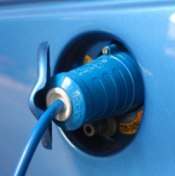Concerns focus on increased delays for goods in transit and new contractual obligations on tech companies which could add interruptions in supply chains.
All of this would mean added costs for imports and exports and would make UK firms less internationally competitive, says techUK, which has today published its recommendations to stimulate the UK tech sector after leaving the Customs Union.
Antony Walker, Deputy CEO at techUK, writes:
“Leaving the Customs Union presents the Government with an opportunity to rethink how the UK can create a world-leading Customs regime, which harnesses the latest developments in digital technologies. But that can’t be achieved overnight. There will be a need for transitional arrangements.”
“Companies need concrete reassurances on what the future customs regime looks like outside of the EU,” said Walker.
The tech sector in this country has highly integrated supply chains across European markets. So to mitigate potential risks to the supply chain, techUK has set out in a report (Challenges and Opportunities for a Digital Global Britain) its recommendations for a future customs regime.
These include a commitment by the Government that the UK will remain in the Customs Union as part of the transitional arrangements to bridge between the UK’s exit from the EU and the entry into force of a new comprehensive trade agreement.
techuk also believes the Government should explore ways to use existing European and world wide regulatory mechanisms such as REACH and ECHA to ensure that additional Customs Checks are not required.
The Government must also ensure that the UK can benefit from key aspects of WTO rules, and commit to signing the Information Technology Agreement on day one of leaving the EU.
techUK also wants the Government to undertake an immediate review to investigate how new digital technologies such as blockchain and machine learning can play a role in delivering a world-leading data-driven frictionless customs system.
 Electronics Weekly Electronics Design & Components Tech News
Electronics Weekly Electronics Design & Components Tech News



